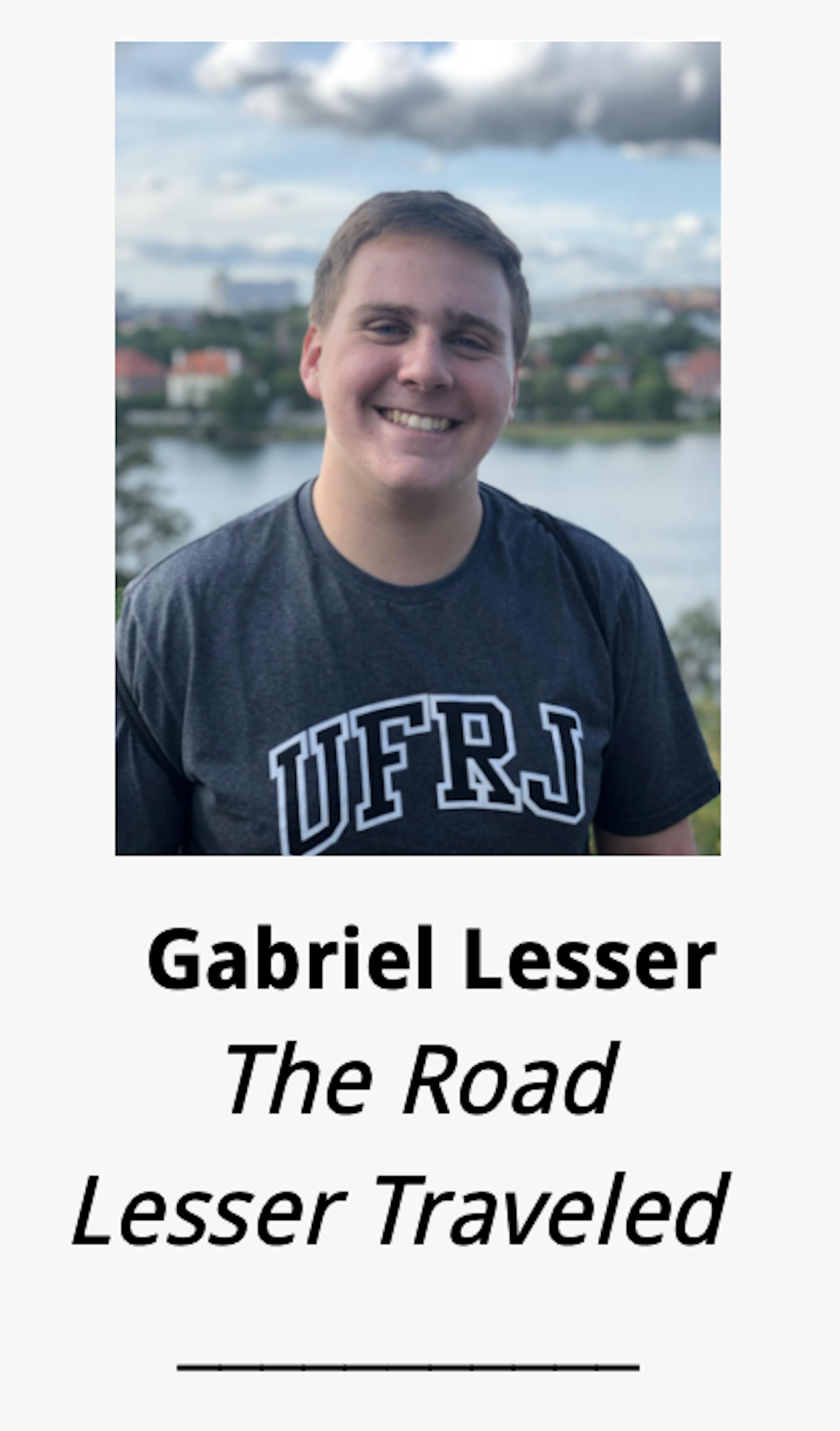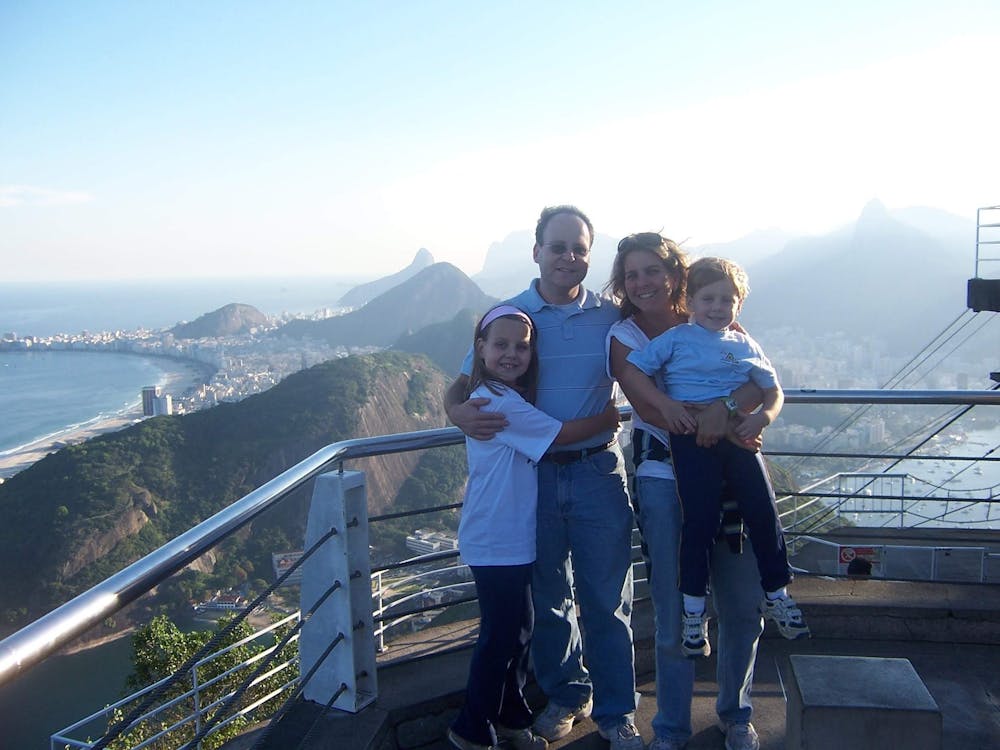
My mom was younger than I am now when she moved from Brazil to the United States.
She met my dad, who is from New York, while they were both studying abroad at Tel Aviv University. At the age of 19, she left her home in Rio de Janeiro and transferred to college in New York to be with my dad.
Despite not knowing that much English when she first got here, she persevered and not only finished college, but also went on to get her Master’s and PhD in clinical psychology.
I’ve looked through her old psychology textbooks, filled with annotations and notes in English. It never ceases to amaze me at how quickly she learned to adapt to a new language in such an advanced academic field.
I remember her telling me that when she first started college in New York, it was hard for her to listen to lectures and take notes at the same time. So she would record her classes on a cassette tape and listen to them later; that way, she could absorb all of the information and take notes at her own pace.
I never knew how that felt until I started my semester here in Spain.
I walked into my first class at La Universidad de Sevilla, and the professor began speaking at what felt like the speed of light. All of a sudden, every student was vigorously typing notes on their computers, trying to capture every word that the professor said.
Meanwhile, I was so focused on merely comprehending the professor’s rapid Spanish that, if I had simultaneously taken notes, I would have been missing even more of the material.
I take for granted how natural it feels to take classes taught in English. In my university classes here in Sevilla, I feel like I stick out like a sore thumb — partly because Spanish is my third language and partly because my peers expect me to fit the stereotype of a “typical clueless American.”
I spent the first few weeks of my classes speaking minimally and trying to blend in so that people wouldn’t notice that I was from somewhere else. But the truth is that I quickly learned that being an international student gives me more opportunities to interact with the people around me.
Now, I am beginning to embrace this uniqueness, and I am no longer scared by the fact that I don’t speak Spanish like an Andaluz. I’ve also gained a deeper appreciation and sense of admiration for international students around the world, most of whom have to go above and beyond to study in their non-native language.
With regards to language, I think of my grandparents, who were the first generation in their families to speak Portuguese natively. My grandma was born in Brazil, but her parents came from Poland. In order to fit in with Brazilian culture, they spoke to my grandma in Portuguese and only spoke their native language of Yiddish amongst themselves.
On the other hand, my grandpa’s parents spoke to him in Yiddish throughout his childhood. I recently learned that, when my grandpa got older, he would continue writing letters to his parents in Yiddish — not Portuguese.
It’s beautiful how we each have our own connections to language. While I personally feel at ease in both English-speaking and Portuguese-speaking environments, I constantly second-guess myself now that I’m living in a Spanish-speaking environment.
When I’m speaking or writing in Spanish, I often filter my thinking process through Portuguese. While this usually comes in handy, it sometimes leads me to overconfidently generate words that don’t actually exist in the Spanish language. And now that I’ve spent so much time focusing on my Spanish, I feel like I’ve lost so much of my ability to communicate in French, which I also study at Hopkins for my Romance Languages major.
Nevertheless, when I face language errors, I’ve learned to laugh it off and treat it as a learning experience. Our language abilities are fluid, and we can build and grow upon them throughout our lives. At the end of the day, the best way to improve is through practice, not through staying silent.
I’m thankful to have so many role models in my family when it comes to learning and persevering through new languages.
I’m grateful for my mom, who valiantly learned to speak fluent English in her young adulthood.
For my dad, who compassionately learned Portuguese to be able to speak with all my mom’s friends and family, and continues to impress me with his extensive Portuguese vocabulary in subjects like law and economics.
And for my older sister, who demonstrates to me how similar our language experiences are and makes me feel understood.
From my family, I’ve realized that learning a language is about commitment, dedication and love and that it’s never too late to learn as long as you put your mind to it.
If I’ve learned anything from this semester in Spain so far, it’s to use my voice to speak with others as much as I can.
Gabriel Lesser is a junior from Westchester, N.Y. studying Neuroscience and Romance Languages. His column explores his memories along with his current reflections and the lessons that he has learned.





